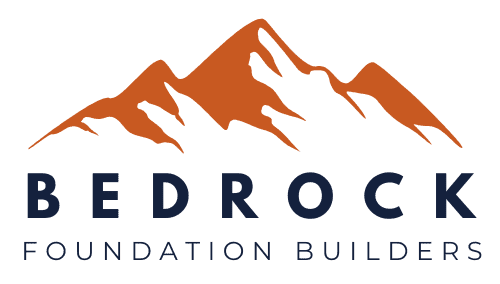Foundation Cracks: When To Freak Out (And When To Chill Out With a Beer)
Alright, let’s talk about the thing that keeps Denver Homeowners up at night: foundation cracks. We get it. You see a jagged line snaking across your basement wall or a tiny fissure in that stem wall, and your brain immediately jumps to “My house is collapsing!” or “There goes my kid’s college fund!” Take a deep breath. We’ve been doing this foundation repair dance in Denver for years at Bedrock Foundation Builders, and trust us, not every crack spells doom. Some are just your house settling in, like breaking in a new pair of boots. Others? Yeah, those need our phone number yesterday. Let’s crack this mystery wide open (pun intended, obviously).
The Great Crack Divide: Harmless Settling vs. “Call Us Now!”
First things first: foundation inspection is your best friend. But before you panic-search “foundation contractor near me,” let’s learn to read the signs.
Hairline Cracks (Vertical or Diagonal): These skinny little guys, often less than 1/8 inch wide? They’re usually just cosmetic battle scars from your house settling into its spot on Denver soil. Think of them like wrinkles – natural over time. Relax. Pour that beer.
Horizontal Cracks or Stair-Step Cracks in Brick/Block: Whoa there! Red flag alert! Horizontal cracks often signal serious pressure from soil pushing against your foundation walls. Stair-step cracks in masonry? Same deal, often linked to shifting soil or water issues. This isn’t DIY territory. This is “pick up the phone and call Bedrock Foundation Builders for an expert foundation inspection” territory. Seriously, don’t ignore these. Ignoring horizontal cracks can lead to catastrophic wall failure.
Wide Cracks (Especially Growing Wider): Found a crack you can fit a dime into? Or one that looked smaller last summer? Yeah, that’s your foundation shouting for help. This often points to ongoing movement, potentially from unstable soil (hello, expansive clay common around Denver!) or serious water damage. Time for professional eyes.
Cracks with Accompanying Issues: Notice your doors sticking? Floors feeling slanted? See moisture seeping through that crack? These are the supporting actors screaming, “The main event is a foundation problem!” Visible moisture or structural shifting alongside cracks means it’s repair time.
Why Your Foundation is Throwing a Fit (Common Culprits)
So, what makes a solid concrete foundation decide to split? It’s rarely just one thing. Here’s the usual Denver suspects:
- Our Feisty Colorado Soil: IMO, Denver soil is the drama queen of foundation problems. Expansive clay swells like a sponge when wet and shrinks dramatically when dry. This constant push-pull stresses foundations relentlessly. FYI, that’s where soil stabilization services become your foundation’s BFF.
- Water, Water Everywhere (But Where It Shouldn’t Be): Poor drainage is public enemy #1. When water pools around your foundation, it soaks the soil, increasing pressure (hydrostatic pressure, if we’re getting fancy). It can also erode supporting soil. This is why drainage service and basement water proofing aren’t just nice-to-haves; they’re essential armor for your home.
- The Settling Shuffle: All houses settle a bit in their first few years. It’s normal. Excessive or uneven settling? Not so much. This can crack slabs, walls, and leave you with wonky floors.
- Construction Shortcuts (Sorry, It Happens): Sometimes, the original concrete mix wasn’t quite right, or the footing depth wasn’t adequate for Denver’s soil conditions. We see it more often than we’d like.
So, You’ve Got a Bad Crack… Now What? (Repair Options Explained)
Okay, the inspection confirmed it: you need foundation repair. Don’t despair. Modern solutions are incredibly effective. Here’s the lowdown on common fixes we use daily at Bedrock Foundation Builders:
- Foundation Underpinning Services: This is the heavy lifter for serious settling or instability. We install sturdy piers (steel push piers or helical piers) deep down to stable soil or bedrock (fitting, right?), then LIFT and stabilize your foundation. It’s like giving your house a solid new set of legs. This is often the permanent solution for uneven settling or failing footings.
- Stem Wall Repair & Concrete Leveling: Cracked or crumbling stem walls (that short wall between your foundation and the wood framing)? We can reinforce and repair them. For sunken concrete slabs inside (garage floors, basements), concrete leveling (often mudjacking or polyjacking) is a fantastic, less invasive fix. We pump material underneath to lift it back to level. Much cheaper than replacement!
- Crawl Space Repair: Neglected crawl spaces are prime real estate for moisture, mold, and structural issues like sagging beams or rotting joists. We shore it up, address moisture, and ensure it’s structurally sound. Essential for homes with post and pier foundations.
- Wall Stabilization: For those scary bowed basement walls or cracked walls under pressure, we install carbon fiber straps or steel I-beams to stop the movement dead in its tracks and prevent collapse.
- The Floating Foundation Fix: While less common in newer Denver builds, some older homes have floating slabs. If these crack or settle due to soil issues, specialized repair techniques are needed – another area our team excels in.
Let’s Talk Turkey: The Dreaded Cost Question
“Alright, Bedrock,” we hear you say, “this sounds great, but what’s the damage? What’s the price gonna do to my wallet?” Fair question! Foundation repair cost varies wildly – like, “fixing a dent” vs. “rebuilding the engine” levels of variation. Why?
- The Problem’s Severity & Size: A single carbon fiber strap is worlds cheaper than full-house underpinning.
- Repair Method Needed: Underpinning is a bigger investment than concrete leveling.
- Access: Is your crawl space a medieval dungeon? That can add time and complexity.
- Materials: Steel piers vs. concrete piers, carbon fiber vs. steel beams – different materials, different costs.
The only way to get an accurate picture? A thorough, in-person foundation inspection by a reputable company (like, ahem, us). We provide detailed, transparent quotes so you know exactly what you’re paying for and why. Investing in proper foundation repair protects your home’s value – often far exceeding the repair cost itself. Don’t just google “foundation repair near me” and pick the cheapest bid; cheap fixes often lead to expensive do-overs.
Prevention: Your Best Defense Against Cracked Walls
Want to avoid major foundation headaches (and repair bills)? Be proactive!
- Master Your Moisture: This is HUGE in Denver.
- Ensure downspouts extend at least 5-6 feet away from your foundation.
- Grade your soil so it slopes away from the house (1 inch per foot for 6 feet is ideal).
- Consider drainage service (like French drains) if you have chronic pooling water.
- Basement water proofing (interior or exterior) is a smart investment for long-term dryness.
- Mind the Trees: Large trees close to your house suck massive amounts of water from the soil, causing shrinkage and settling. Keep them at a distance.
- Consistency is Key: Avoid drastic soil moisture changes. Water foundation areas gently during extreme dry spells (if allowed), especially if you have expansive clay.
- Regular Check-Ups: Keep an eye on existing cracks. Mark their ends with pencil and date it. If they grow, call us. An occasional professional foundation inspection is smart preventative maintenance.
Your Burning Foundation Crack Questions, Answered
We hear these all the time:
“Are all foundation cracks bad?”
Nope! Small, hairline vertical cracks are usually just cosmetic settling cracks. Horizontal cracks, wide cracks, or cracks that are growing or leaking? Those are bad. When in doubt, get it checked.“Can I just fill a crack myself with caulk?”
For tiny, non-structural, non-leaking hairline cracks? Sure, for aesthetics. But if the crack is structural, wide, or leaking, caulk is just a band-aid on a broken bone. It won’t stop the movement or the water. Fixing the cause (soil, water, structure) is essential – that’s where professional foundation repair comes in.“How much does foundation repair really cost in Denver?”
There’s no one-size-fits-all answer (we wish!). Simple wall stabilization might start in the low thousands. Major foundation underpinning services for an entire house can reach $20,000 or more. The only way to know is a professional assessment. Don’t let sticker shock from online horror stories scare you off getting an inspection – many repairs fall in the mid-range. We offer free inspections at Bedrock Foundation Builders because knowing your options is power.
Wrapping It Up: Don’t Lose Sleep, Just Get Smart
Look, seeing a crack in your foundation is unnerving. But knowledge is power. Most hairline cracks? Probably fine. Horizontal cracks, big gaps, or cracks paired with sticking doors/windows or water? That’s your cue to act. Ignoring serious foundation issues is like ignoring a check engine light – it only gets more expensive and dangerous.
Denver’s unique soil and climate mean foundations need attention. Whether it’s preventative drainage service, critical foundation underpinning services, or just a professional foundation inspection to ease your mind, Bedrock Foundation Builders is here. We’ve stabilized, leveled, waterproofed, and repaired countless Denver homes. We speak “foundation,” we understand Denver, and we give it to you straight. Don’t spend another night worrying about that crack. Give us a call, let’s take a look, and get you back to relaxing – beer in hand, foundation secure. 🙂



Comments are closed